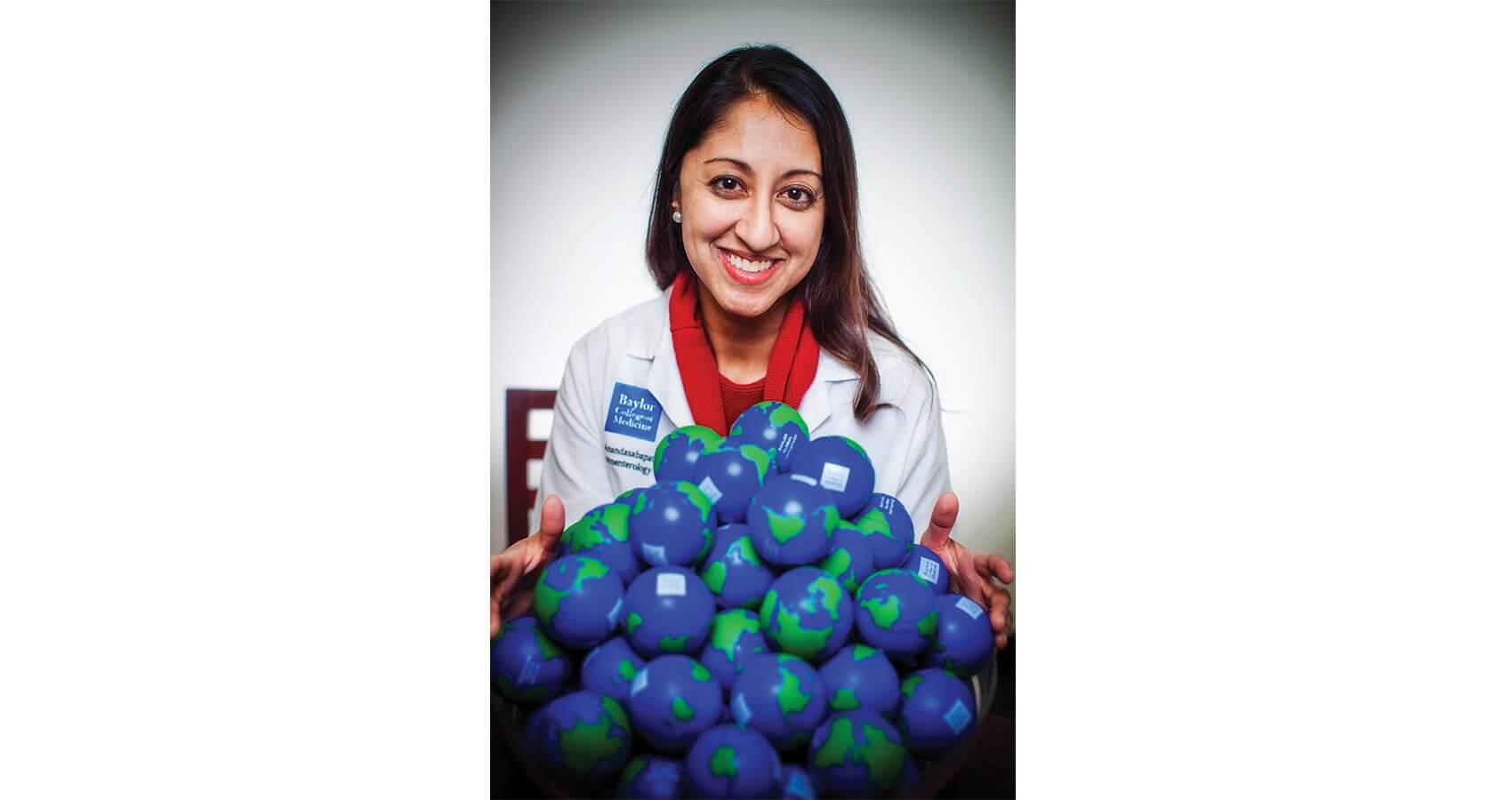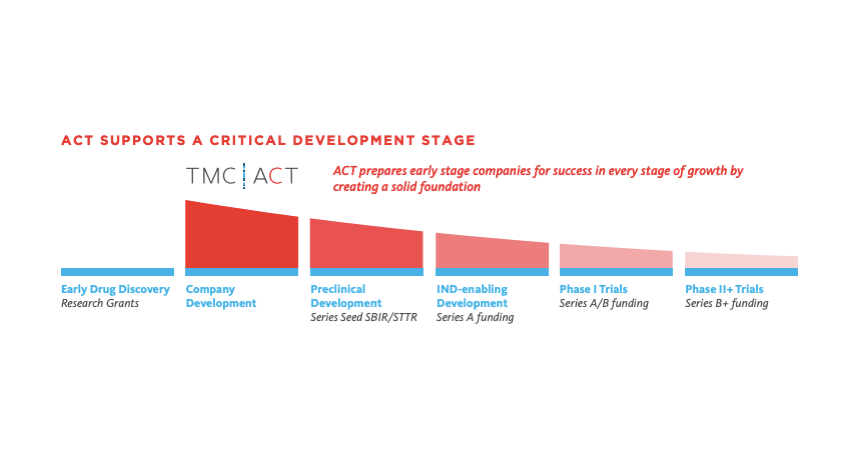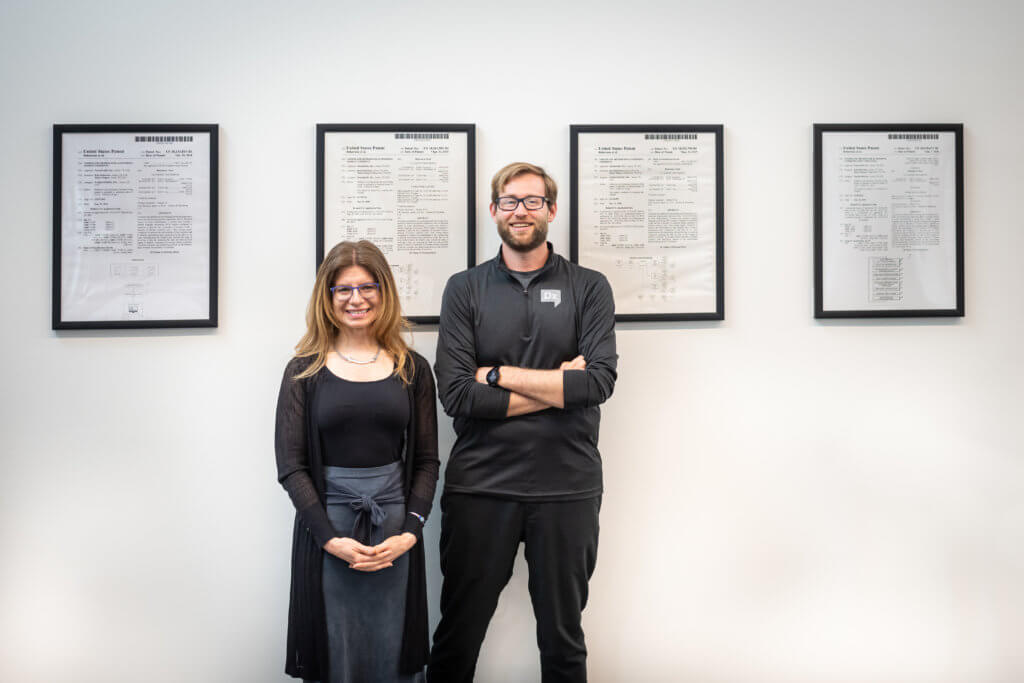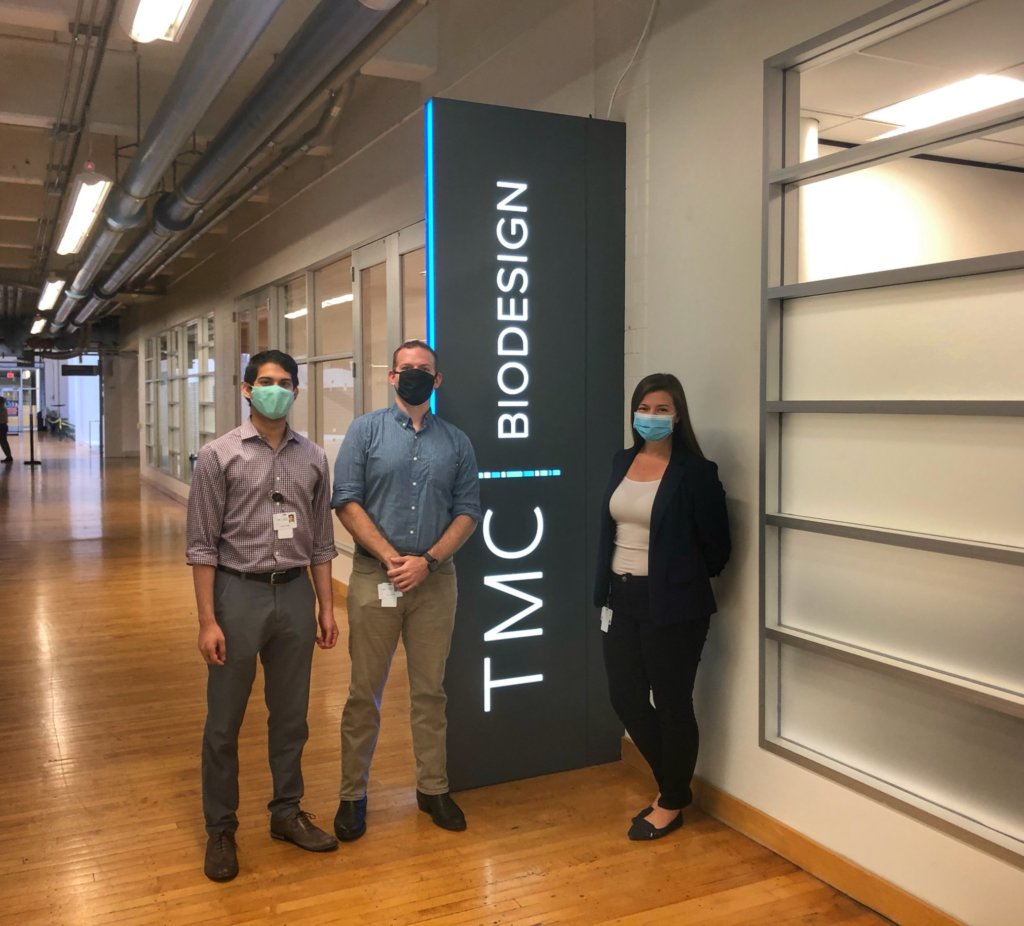Global Perspective
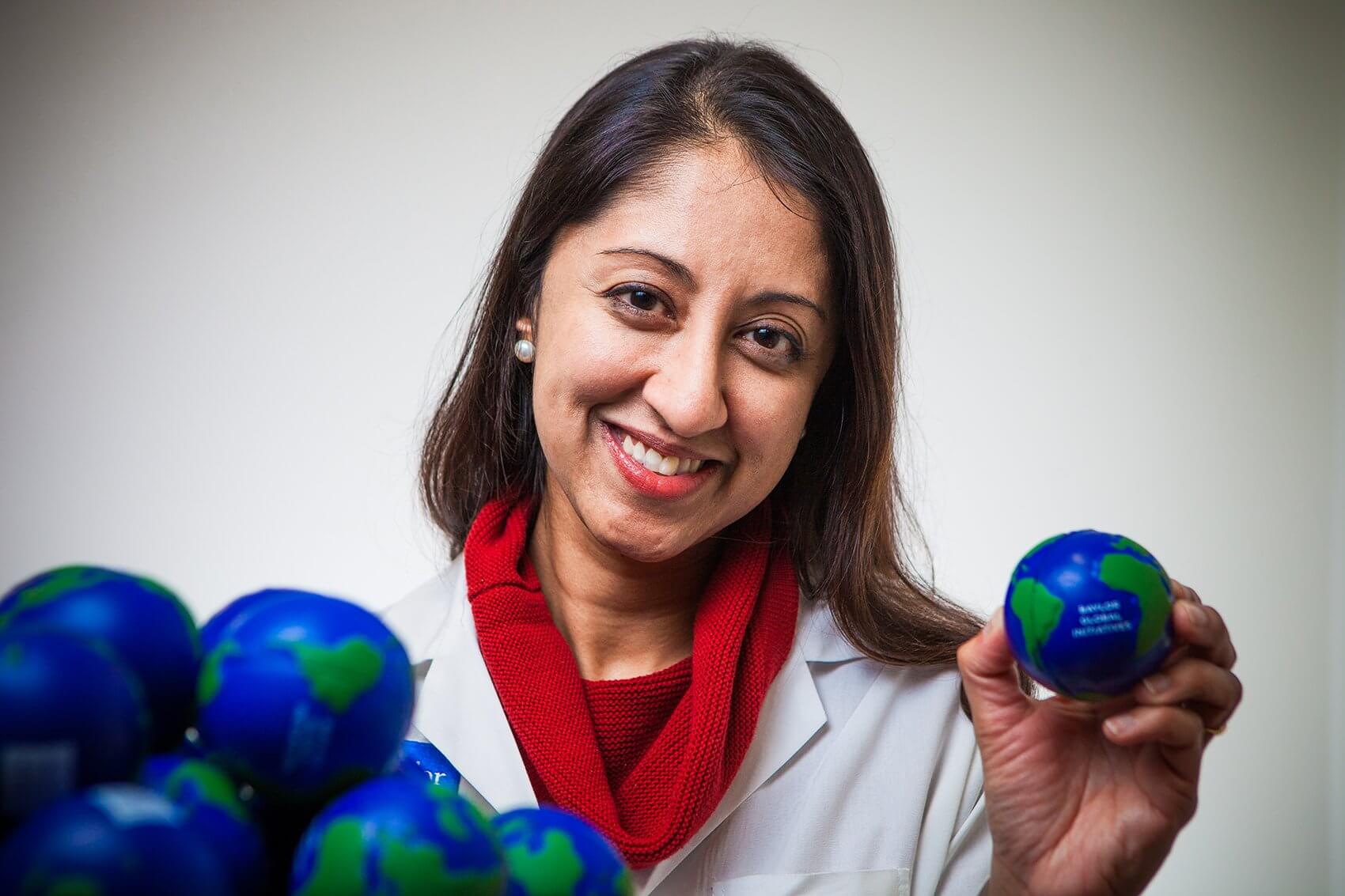
In the United States, a grave diagnosis—cancer, diabetes, dementia—can bring fear and anxiety, but it’s also often accompanied by a distinct plan for medical care. Chemotherapy, insulin injections, medications—there are strategies for moving forward. In the far-flung corners of the world, however, the story is often different. How can a patient in Sub-Saharan Africa access cancer screening? Will a diabetic patient in northern China be able to regularly check his blood sugar? How will a dementia patient in rural Honduras have access to caretakers if physicians and nurses are scarce? These are just a few of the types of questions Baylor Global Initiatives at Baylor College of Medicine strives to answer.
Health care costs in the U.S. number in the multi-trillions, a number incomprehensible to a large portion of the world. In many under-resourced regions, the health care solutions the U.S. relies upon are simply not feasible. Physicians, nurses and researchers must take a problem that is relatively easy to solve in the U.S. and look at it in a new light. The creativity and collaboration global health problems require led Sharmila Anandasabapathy, M.D., director of Baylor Global Initiatives, to devote her career to looking at medicine on a worldwide scale.
“I went from doing high-tech, high-cost devices in the U.S., to realizing that those approaches and those technologies did not work in other parts of the world,” she said. “If we were going to have any impact on global cancer mortality, we had to change both the devices that we were using and the environment and systems in which those devices were being unfolded.”
Anandasabapathy, also a professor at Baylor and director of the Baylor Global Innovation Center, was formerly Chief of Endoscopy at The Mount Sinai Hospital in New York City. A number of experiences caring for patients in other countries inspired her to globalize her focus.
“We do health care in a very expensive way in this country and it’s not exactly appropriate for other areas,” she said. “If you start with a blank slate, and you have the opportunity to do this in other countries, you actually have the opportunity to be more innovative in your approaches to health care.”
For example, she explained, a procedure traditionally done by a gastrointestinal endoscopist with nine years of experience is not practical in areas of the world where such health care workers are not available. In those situations, creativity is a must and thinking outside of the box can provide solutions that not only work in under-resourced international areas, but can also be put into practice right here at home.
“You have to think about training other health care workers. You have to think about using software to make the interpretation of images more accessible. You have to think about using wireless or 3G to transmit those images elsewhere for interpretation,” she said. “The wonderful thing about trying to adapt technologies is that you come up with solutions which may not only be suitable for those other parts of the world, but may actually be suitable for the United States.”
With these goals in mind, Anandasabapathy arrived in Houston in July 2014 planning to expand global health offerings both at Baylor and in the Texas Medical Center community overall. Alicia Monroe, M.D., provost and senior vice president of academic and faculty affairs at Baylor, said Anandasabapathy’s recruitment represents Baylor’s added emphasis on global health education and innovation.
“We want to involve our students in thinking about global health and becoming better prepared to be either scientists or health professionals that really operate in a global environment,” said Monroe. “Thinking not just locally about challenges and population health issues but also adding a more global perspective to it.”
“If you start with a blank slate, and you have the opportunity to do this in other countries, you actually have the opportunity to be more innovative in your approaches to health care.” — Sharmila Anandasabapathy, M.D., Director of Baylor Global Initiatives
To that end, Baylor Global Initiatives recently held its annual Global Health Symposium, which provided a look at some of the projects students and researchers have been working on, as well as discussion of the future of Baylor Global Initiatives.
During her opening remarks, Anandasabapathy outlined some of the innovations that serve as models for the types of projects Baylor Global Initiatives encourages. StepStoneMed, for example, develops tablet and mobile-based educational tools featuring culturally appropriate graphics and language.
She also described a recent project Baylor students and faculty have been working on: the Emergency Smart Pod. Made from shipping containers, which are virtually ubiquitous in many parts of the world, these mobile clinical management units are solar-powered so they do not require electricity. They also have features like controlled-access entry, bar-code scanning systems to use phones and tablets for tracking patients and supplies, and areas for disinfection and donning personal protective equipment.
Baylor recently received a grant from the United States Agency for International Development (USAID) to build a prototype of the Emergency Smart Pod. Baylor is one of 12 recipients awarded grants for responding to President Barack Obama’s challenge to find innovative tools to help with the Ebola crisis.
“Although our focus is on chronic, noncommunicable disease,” explained Anandasabapathy, “that is not exclusive and we are trying to be innovative in other spaces as well.”
As a follow up to the Global Health Symposium, and to further foster innovation, Baylor Global Initiatives will host its first ever Global Hack-a-thon Sept. 18-20 in the TMC|X Accelerator space. “What we’ll be doing is enlisting some of our global health collaborators from all over–surgeons, obstetricians, anesthesiologists, emergency medical workers—to present a few critical medical problems in specialized areas around the world,” Anandasabapathy explained.
Though participants will know the general topics beforehand, the specific clinical issue will be a surprise. For example, they will be informed of whether it’s going to be related to procedural care, operative care or emergency response, but they will not be told details until the event begins. The hack-a-thon is open to anyone who wants to participate from any background. Whether their expertise is in medicine, business, engineering, or another area, the idea is to provide an even playing field to let participants’ imaginations run wild.
“We’re hoping that over a 48 to 72-hour period we’ll see some amazing questions get answered,” said Anandasabapathy. “This is where you bring your creativity—it’s a completely open, safe environment to let your creative juices run free. We’ll see what they come up with, and I think it’ll be a lot of fun.”
Monroe echoed Anandasabapathy regarding the breadth of experience and knowledge the hack-a-thon is intended to embrace.
“It will allow students from a variety of backgrounds, along with faculty and investigators, to look at large, real-world problems and to begin to think about solutions to real-world problems while they’re still in the midst of their education,” said Monroe. “Thinking not just locally about challenges and population health issues but also adding a more global perspective to it.”
In fact, the hack-a-thon represents what Baylor Global Initiatives aims to do on a larger scale—to unite people from a variety of backgrounds, both in expertise and in geography, with the common goal of improving health throughout the world.
“As a clinician, if you’re not working with biomedical engineers, if you’re not working with competent health care managers, if you’re not working with epidemiologists and public health people, you don’t have the kind of context or support for application of your work,” said Anandasabapathy. “You realize that its not just a question of providing medical care to underserved areas, you have to address the problem at a larger scale.”
A hospital in Africa can have excellent physicians, she said, but if the power keeps going out or if there isn’t anyone to properly manage the hospitals from a business perspective, the clinicians will not be able to work to their full potential. And for Baylor, reaching that potential entails forming partnerships with institutions in the wider global community.
“We’re very much looking to identify a small number of international institutions where we can have both research partnerships and reciprocity with faculty,” said Monroe. “We can have collaborations around teaching and research, and there may be some opportunities for us to provide or share or develop new training models.”
These partnerships will be centered on mutually beneficial, bi-directional learning, and will provide opportunities for student and faculty exchanges.
“We don’t have all the answers,” said Monroe. “There are some countries that have pioneered certain kinds of use of technology that we can learn from with all humility.”
The Texas Medical Center itself is also rife with opportunities for collaboration, and Baylor Global Initiatives is taking full advantage. This includes working with Rice’s 360 Institute for Global Health Technologies to develop novel approaches to cancer screening and imaging, for example, using battery-operated tablets and devices that work on 3G or wirelessly. The idea is to decrease international cancer mortality by enabling earlier detection in places that don’t have electricity or the capacity to support complex devices. These are the challenges on which Baylor Global Initiatives thrives.
“There’s a can-do spirit here, and that is perfect because you have to have that spirit to address global health,” said Anandasabapathy. “Otherwise the problems seem so overwhelming. You have to approach it with that optimism and a sense of challenge and wanting to fix it. I think it’s a great environment. I’m really excited to be here.”

